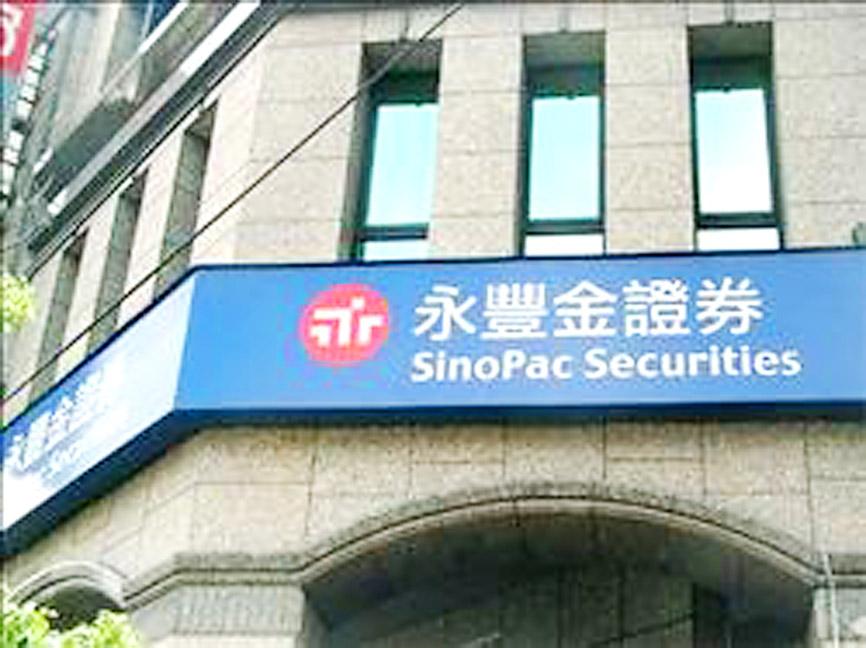The Financial Supervisory Commission (FSC) has approved SinoPac Securities Co’s (永豐金證券) application to launch a sandbox experiment that utilizes robot-advisers to provide dollar-cost averaging investment programs, the commission said on Tuesday.
Taiwan’s ninth fintech sandbox experiment would begin within three months, FSC Department of Planning Director-General Lin Chih-hsien (林志憲) said.
SinoPac Securities would collaborate with Alpha Fintech Co’s (阿爾發金融科技) securities investment consulting unit, which offers automated, algorithm-driven financial planning services, the commission said.

Photo: Tsai Chang-sheng, Taipei Times
In the experiment, the robot-advisory firm would assess investors’ risk appetite through an online survey and provide customized investment advice, Lin said.
For example, an algorithm would suggest exchange-traded funds (ETFs) that match the investor’s preferences, and SinoPac Securities would offer the ETF to the investor, Lin said.
If an investor shows a low risk appetite and the algorithm labels them “conservative,” they would be offered different financial products than an “aggressive” investor, Lin said.
SinoPac Securities’ clients would exclusively be offered to take part in the experiment, he said.
The experiment is limited to 5,700 participants, and each participant can invest up to NT$250,000 (US$8,847) in algorithm-suggested products, Lin said.
The total investment volume could not exceed NT$200 million, he added.

Taiwan Semiconductor Manufacturing Co (TSMC, 台積電), the world’s biggest contract chipmaker, booked its first-ever profit from its Arizona subsidiary in the first half of this year, four years after operations began, a company financial statement showed. Wholly owned by TSMC, the Arizona unit contributed NT$4.52 billion (US$150.1 million) in net profit, compared with a loss of NT$4.34 billion a year earlier, the statement showed. The company attributed the turnaround to strong market demand and high factory utilization. The Arizona unit counts Apple Inc, Nvidia Corp and Advanced Micro Devices Inc among its major customers. The firm’s first fab in Arizona began high-volume production

VOTE OF CONFIDENCE: The Japanese company is adding Intel to an investment portfolio that includes artificial intelligence linchpins Nvidia Corp and TSMC Softbank Group Corp agreed to buy US$2 billion of Intel Corp stock, a surprise deal to shore up a struggling US name while boosting its own chip ambitions. The Japanese company, which is adding Intel to an investment portfolio that includes artificial intelligence (AI) linchpins Nvidia Corp and Taiwan Semiconductor Manufacturing Co (TSMC, 台積電), is to pay US$23 a share — a small discount to Intel’s last close. Shares of the US chipmaker, which would issue new stock to Softbank, surged more than 5 percent in after-hours trading. Softbank’s stock fell as much as 5.4 percent on Tuesday in Tokyo, its

SETBACK: Apple’s India iPhone push has been disrupted after Foxconn recalled hundreds of Chinese engineers, amid Beijing’s attempts to curb tech transfers Apple Inc assembly partner Hon Hai Precision Industry Co (鴻海精密), also known internationally as Foxconn Technology Group (富士康科技集團), has recalled about 300 Chinese engineers from a factory in India, the latest setback for the iPhone maker’s push to rapidly expand in the country. The extraction of Chinese workers from the factory of Yuzhan Technology (India) Private Ltd, a Hon Hai component unit, in southern Tamil Nadu state, is the second such move in a few months. The company has started flying in Taiwanese engineers to replace staff leaving, people familiar with the matter said, asking not to be named, as the

The prices of gasoline and diesel at domestic fuel stations are to rise NT$0.1 and NT$0.4 per liter this week respectively, after international crude oil prices rose last week, CPC Corp, Taiwan (台灣中油) and Formosa Petrochemical Corp (台塑石化) announced yesterday. Effective today, gasoline prices at CPC and Formosa stations are to rise to NT$27.3, NT$28.8 and NT$30.8 per liter for 92, 95 and 98-octane unleaded gasoline respectively, the companies said in separate statements. The price of premium diesel is to rise to NT$26.2 per liter at CPC stations and NT$26 at Formosa pumps, they said. The announcements came after international crude oil prices